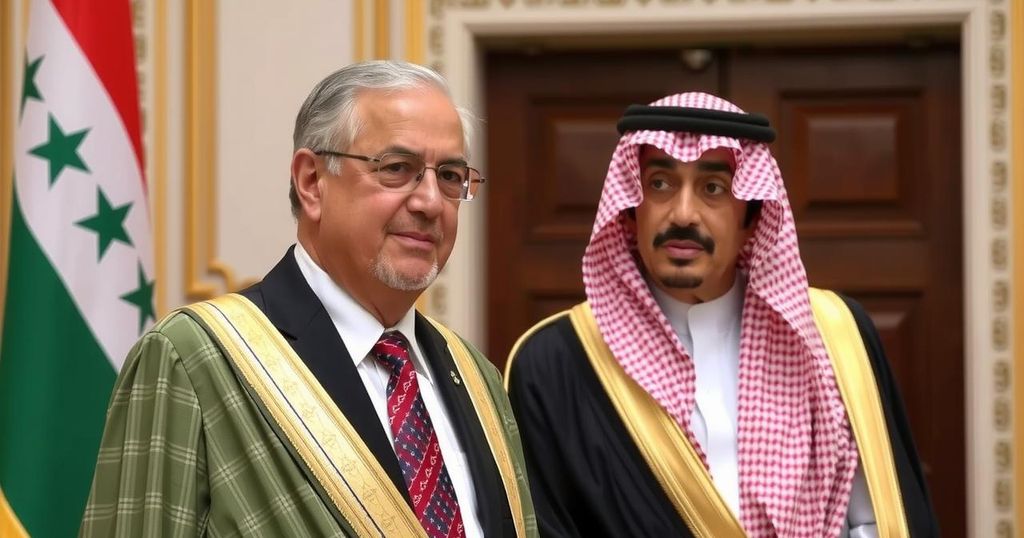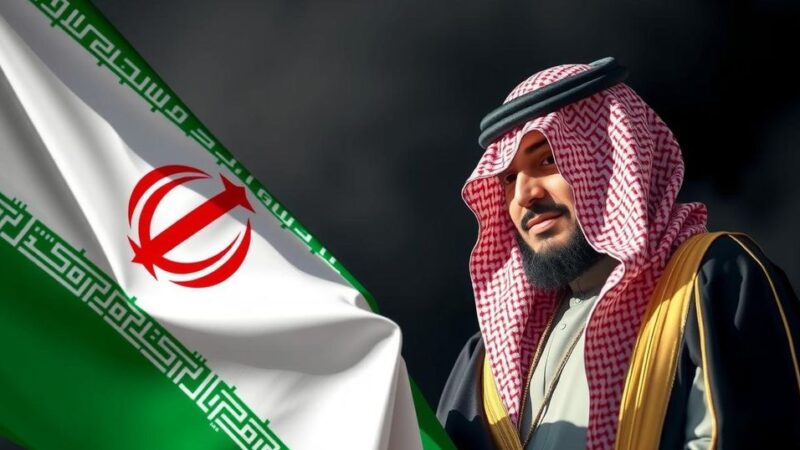Syria’s Foreign Minister Asaad Al Shibani visited Saudi Arabia on his first official trip, marking a significant step for the new government post-Bashar Al Assad’s ouster. The visit aims to strengthen Syrian-Saudi ties, with Al Shibani expressing hopes for a positive future between the nations. Regional powers have begun engaging with Syria’s leadership amidst the backdrop of recovering from a lengthy civil war and ongoing socio-economic challenges.
On Wednesday, Syria’s Foreign Minister Asaad Al Shibani embarked on his inaugural diplomatic trip to Saudi Arabia, marking the first overseas visit by members of the newly established Syrian government following the recent ousting of former President Bashar Al Assad. Al Shibani’s delegation included Minister of Defence Murhaf Abu Qasra and Head of the General Intelligence Service Anas Khattab, highlighting the significance of this diplomatic venture while expressing hopes of rekindling strong bilateral relations.
In a statement released on X, Al Shibani stated, “Through this first visit in the history of Free Syria, we aspire to open a new, bright page in Syrian-Saudi relations that befits the long shared history between the two countries.” This diplomatic shift follows a series of gestures from regional powers as they engage with Syria’s new leadership, now headed by Ahmad Al Shara, who has acknowledged Saudi Arabia’s pivotal role in the future of Syria.
Al Shibani’s visit to Saudi Arabia came at the invitation of Saudi Foreign Minister Prince Faisal bin Farhan and was marked by a warm welcome from Saudi Vice Minister of Foreign Affairs Waleed bin Abdulkarim El Khereiji at Riyadh airport. The Syrian state’s media reported that leaders from Egypt and Oman have already pledged their support to Syria as the country embarks on this new diplomatic chapter.
Following the civil war that devastated Syria over the past 13 years, predominantly due to the violent crackdown on pro-democracy movements, regional dynamics have evolved significantly. Saudi Arabia had cut ties with Assad in 2012, but relations have thawed in recent years, leading to Syria’s re-entry into the Arab League and ultimately ending its long-standing isolation.
Following these socio-political developments, Saudi Arabia and other Gulf nations had also sought assurances from Damascus regarding curbing the illicit drug trade related to Captagon, which had turned into a lucrative sector during Assad’s rule.
The diplomatic landscape in the Middle East has been shifting as countries reassess their relationships with Syria following the overthrow of President Bashar Al Assad. The Syrian civil war, which began in 2011, led to dire humanitarian crises and significant economic decline. With the emergence of new leaders and factions, including Hayat Tahrir Al Sham, there is a push among regional powers, including Saudi Arabia, to restore connections that were severed during the height of the civil conflict. Saudi Arabia’s support could potentially herald a new era of economic recovery and stability for Syria, which has been battered by years of violence and isolation.
In summary, Asaad Al Shibani’s visit to Saudi Arabia symbolizes a significant diplomatic milestone for Syria’s new government, aiming to foster improved relations and engage regional partners. Given the complexities of Syria’s political climate and the ongoing challenges posed by its economy and infrastructure, this trip reflects both hope and strategic interests for the future. By restoring diplomatic ties and seeking support from neighboring nations, Syria may be on a path to recovery, contingent upon adhering to regional expectations.
Original Source: www.thenationalnews.com







